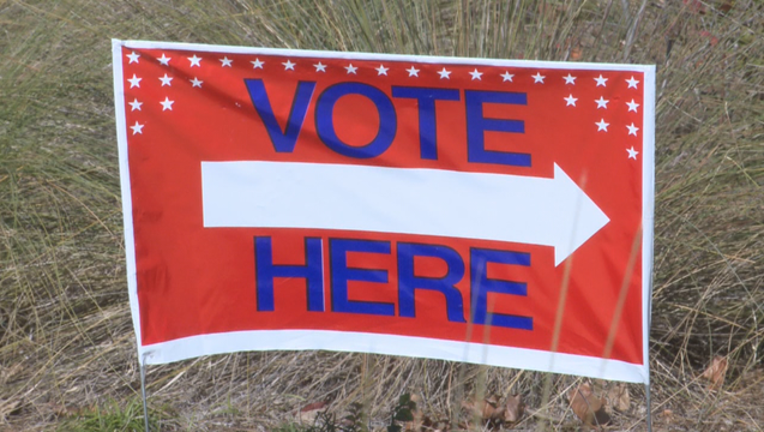Democrats turn out in force in Georgia early voting

ATLANTA (AP) - Georgia's Democratic voters have turned out in force in early voting, an encouraging signal for the party as it tries to wrest control from Republicans after blistering defeats two years ago in the 2016 election.
The initial tally could hearten Democrats hoping for a "blue wave" of wins in the state, the crown jewel of which would be the Georgia governor's mansion, held by Republicans since 2003.
Voters will get their final chance to cast a primary ballot Tuesday.
Republican ballots made up approximately 61 percent of early and absentee primary votes in the 2014 and 2016 election cycles, according to data provided by Secretary of State Brian Kemp's office. Democratic ballots made up just 37 percent those years.
Fast forward to this year, and the Republican share of early and absentee primary ballots has shrunk to 53 percent, while Democrats' share has climbed to 46 percent. Still, even though Democrats have seen recent gains, GOP advance voters exceeded Democratic ones by a healthy margin.
Unlike some states that require registration with a party in order to vote, Georgia's primaries are open. That means a voter can choose either a Democratic or Republican primary ballot, even if they plan to vote for the other party in the November general election.
The total number of early ballots cast was down slightly, according to preliminary estimates, from roughly 329,000 in 2016 to 320,000 this year, though years like 2016 with a presidential election usually record higher turnouts.
Advance in-person voting continues to increase each year in Georgia, while mail-in voting has tapered.
The two Democratic candidates for Georgia governor include former state House Minority Leader Stacey Abrams and former state Rep. Stacey Evans.
Either candidate would be the first female Democratic gubernatorial nominee in Georgia and, if elected in November, the first female governor of the state.
The Republican candidates include Lt. Gov. Casey Cagle, Kemp, former state Sen. Hunter Hill, state Sen. Michael Williams and businessman Clay Tippins.
If no candidate receives more than 50 percent of the primary vote - a distinct possibility in the crowded GOP field - the two with the most votes will advance to a July 24 runoff.
Cagle has maintained a steady lead in public polling on the Republican side, but a tight battle is playing out for the No. 2 spot and a position in a possible runoff.
Advanced in-person voting began April 30.

